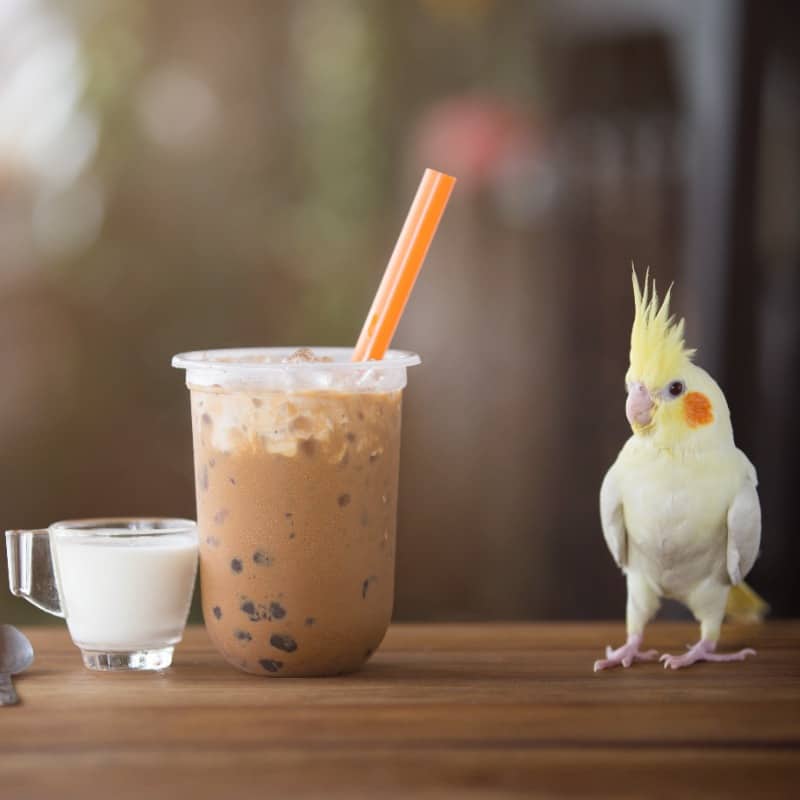It’s important to remember, that although birds are warm-blooded unlike mammals, they hatch from eggs. The placenta is the delivery system for mammals providing nourishment to their embryos.
Colostrum is the substance mammalian mothers produce that provides antibodies and essential nutrients for newborns.
Within a few days, mammalian mothers produce milk which is a combination of water, fats, proteins, carbohydrates, minerals, vitamins, and other nutritional necessities. Mammals produce enzymes (lactase) that enable the digestion of lactose.
Birds are an entirely different story in that their embryos are found inside an egg. Nature must provide that egg with all of the nutrients and liquids that are needed to nurture the bird until hatch day. Regurgitation is a method that parent birds used to feed the chicks because they can’t nurse.
Food stored in the bird’s crop is regurgitated. Pigeons actually offer part of their crop itself as food for the chicks and although it’s called “crop milk” it has nothing to do with the milk that mammals produce. Crop milk is rich in nutrients but has no carbohydrates, calcium, or milk sugars. Pigeon chicks will get crop milk for 2 to 3 days but then are soon fed other types of food.
There is no milk offered to birds in the rainforest. Birds in the wild eat things that birds normally eat like seeds, nuts, vegetables, leaves, blossoms, nectar, and so forth. This means birds developmentally never acquired the enzymes that are needed to digest lactose (milk sugar). This is why we say birds are lactose intolerant (they just don’t know it). So milk products will usually pass through the entire digestive system undigested. Because the products contain sugar they may draw fluids into the intestinal tract which can cause diarrhea if ingested in large amounts. Dairy products in moderation are usually not harmful to most birds.
Cottage cheese contains no lactose. Usually, yogurt and low lactose cheese are your best bet offered in small amounts. Like a carrot cube size. Note Cheddar is high in lactose whereas Mozzarella is low in lactose.
It’s important to keep in mind that live-culture yogurt contains lactose when produced but the organisms in the yogurt consume the lactose which removes it entirely from the yogurt. Some cheese products have onions and garlic which is not good for birds – is best to avoid these.
Our birds love eating with us, so sharing a small bit of cold breakfast cereal with milk or oatmeal made with milk is okay. Caffeinated beverages like coffee should be avoided totally. And if you think about giving your bird products that are advertised for lactose-intolerant humans – DO NOT offer these to your birds as the compounds that break down the lactose within these products are highly toxic to all birds.
 Feeding Exotic BirdsDecember 29, 2025How to Switch or Convert Your Bird From Seeds to Pellets: Real-Life Case Studies and Practical Guidance
Feeding Exotic BirdsDecember 29, 2025How to Switch or Convert Your Bird From Seeds to Pellets: Real-Life Case Studies and Practical Guidance Feeding Exotic BirdsDecember 16, 2025A Practical, Budget-Smart Guide to Feeding Birds Well
Feeding Exotic BirdsDecember 16, 2025A Practical, Budget-Smart Guide to Feeding Birds Well Bird EnviornmentsDecember 7, 2025Understanding Budgie Cage Bar Orientation: Myths, Realities & Practical Solutions for Vertical-Bar Bird Cages
Bird EnviornmentsDecember 7, 2025Understanding Budgie Cage Bar Orientation: Myths, Realities & Practical Solutions for Vertical-Bar Bird Cages Feeding Exotic BirdsDecember 5, 2025How Dr. T.J. Lafeber Rewrote the Future of Pet Bird Nutrition
Feeding Exotic BirdsDecember 5, 2025How Dr. T.J. Lafeber Rewrote the Future of Pet Bird Nutrition



Paula
16 Apr 2017My CAG loves to steal the milk from my cereal at breakfast, so I switched from cow’s milk to unsweetened almond milk. Is that okay?
WindyCityParrot
17 Apr 2017A little milk wont hurt – the issue is birds have no enzymes to digest any lactose
audrey
16 Apr 2017My m2 loves coconut soy yogurt… It is how I can get him to eat some pureed vegies. Is this ok? Thank you!
WindyCityParrot
17 Apr 2017We’re finding soy may have harmful effect on birds, it’s best to monitor day to day
audrey
19 Jan 2018Oh no…send me the details. 🙁
WindyCityParrot
19 Jan 2018working on a post now – stay tuned
Patrick Marino
17 Apr 2017https://uploads.disquscdn.com/images/8dfd265f4691538e5b955bc5bb99b56aa09250750dc3d6fbfaab15cdd48f16a2.jpg My B& G macaw loves scrambled eggs. Will give to her one time a week. And the shells are also good for calcium.
WindyCityParrot
17 Apr 2017We had a ringneck that would about teaar off your arm for hes scrambled eggs:-)
Kabegami The Great
27 Jul 2018How much mozzarella in moderation are we talking here?